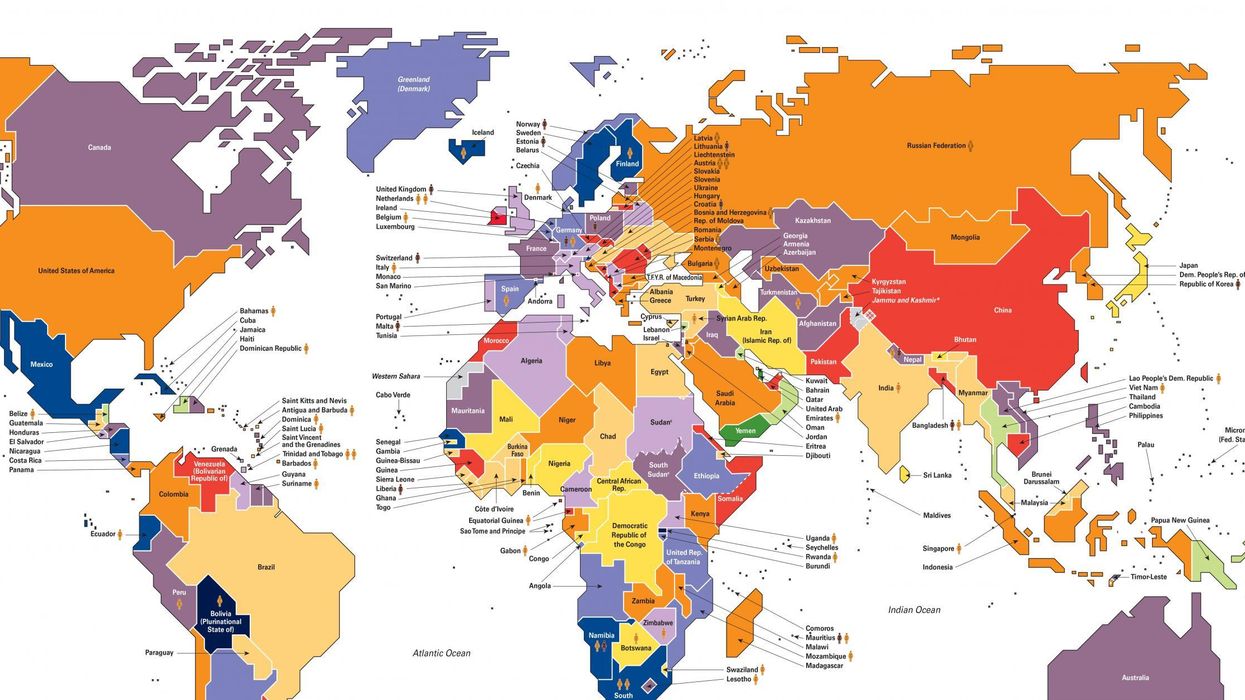Louis Dor
Apr 13, 2017

Picture:
UN Women
Theresa May is one of a diminishing number of women heads of state or government.
The number of women heads of state or government fell from 19 to 17 since 2015, according to the UN, and progress in the number of women in parliament around the world continues to be slow.
While the global average of women in national parliaments increased from 22.6 in 2015, to 23.3 per cent in 2016, the number of women speakers of the house is up to 53 out of 273 posts worldwide.
Here's a global snapshot:
The number of women Ministers barely changed since 2015, rising from 730 to 732 - a rate of 18.3 per cent.
In Europe the percentage rose to 22.5 per cent from 21.6 per cent in 2015.
The United Kingdom and Romania gained the most women ministers during this time - three.
Inter-Parliamentary Union (IPU) Secretary-General Martin Chungong said:
These developments show that progress in gender equality remains slow in all structures of power and types of decision-making.
Power is still firmly in men’s hands, and although we have witnessed some positive trends—for example, the current record number of 53 women Speakers of Parliament out of 273 posts, globally — much remains to be done if women are to play on a level field with men.
Equal representation in positions of power is a fundamental precondition for truly effective and accountable democracy.
More: This panel sums up the problem with discussing women in politics
Top 100
The Conversation (0)













